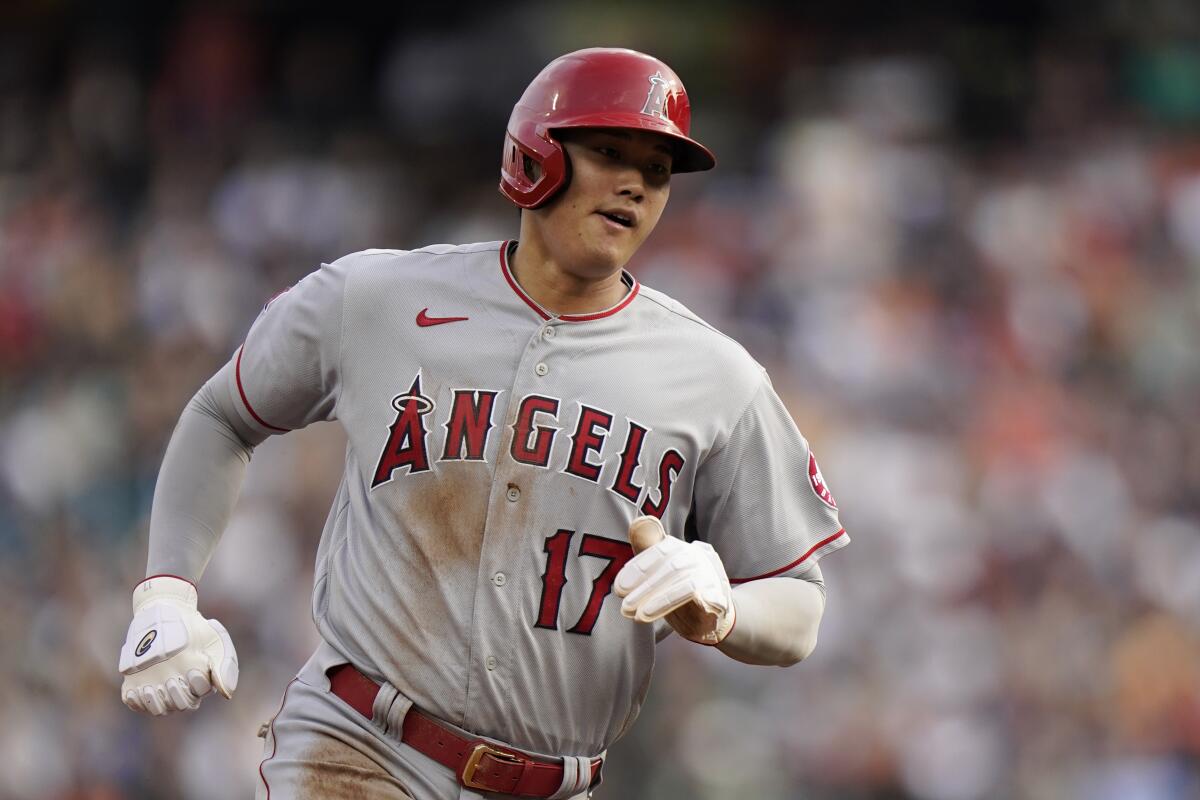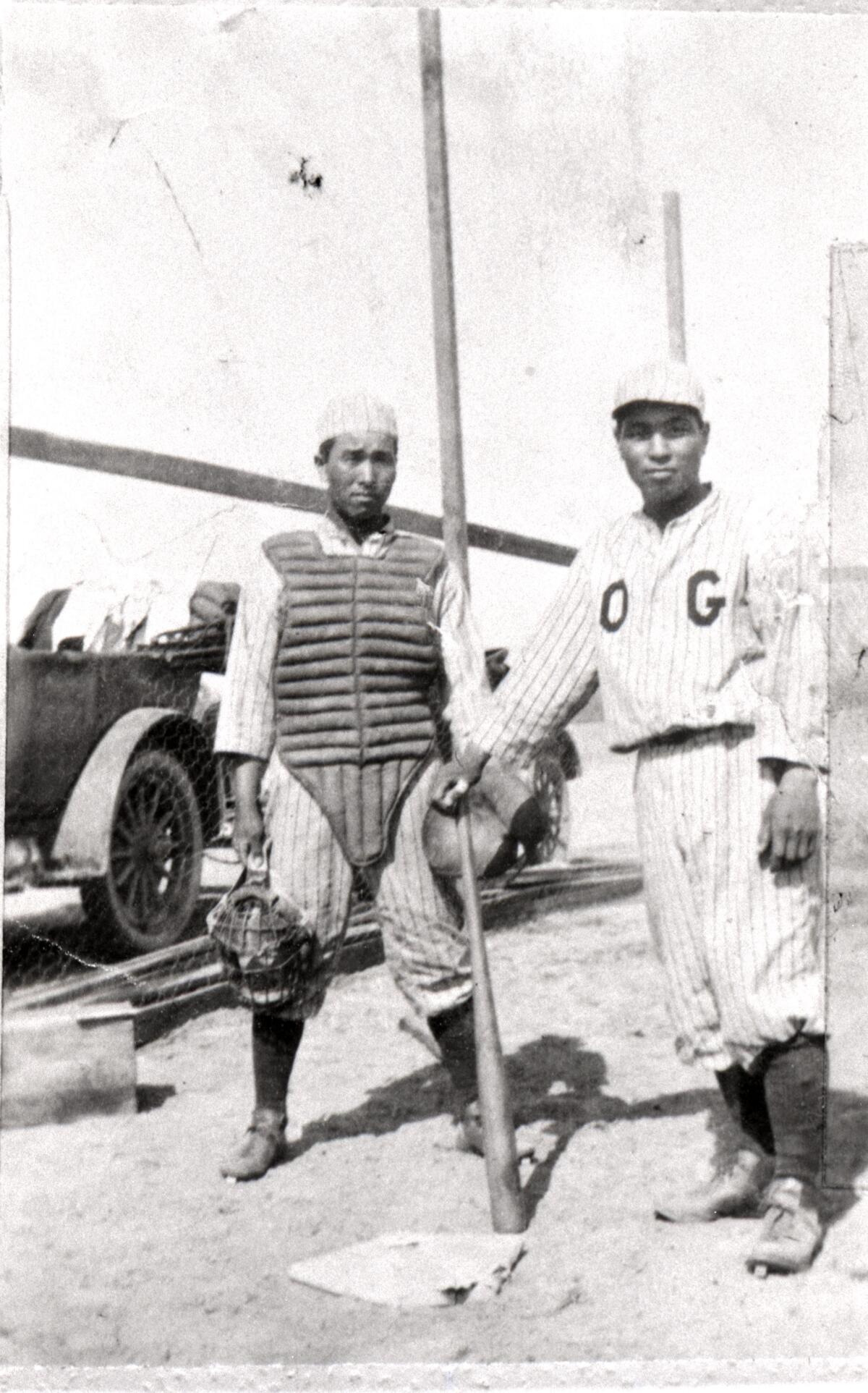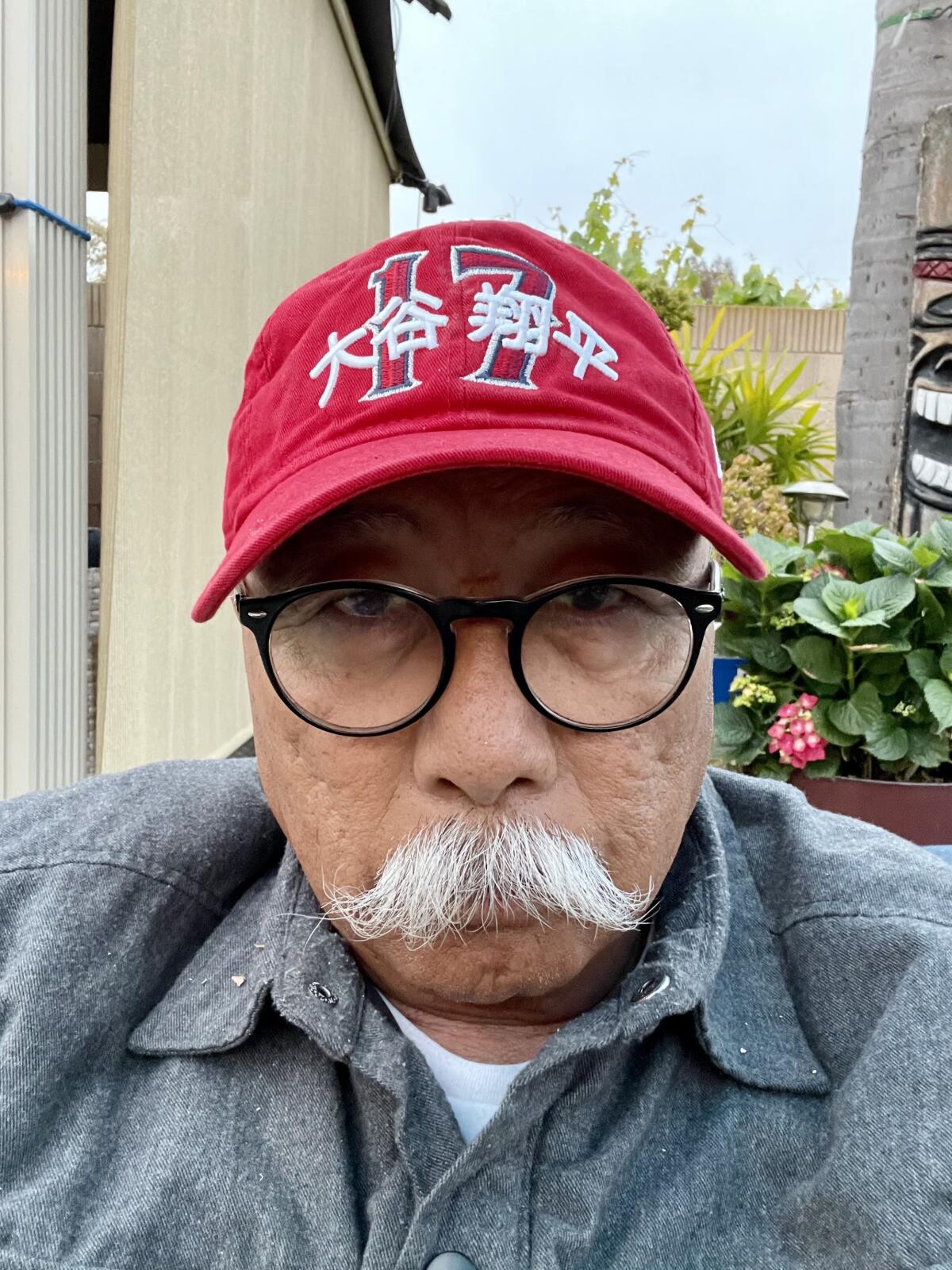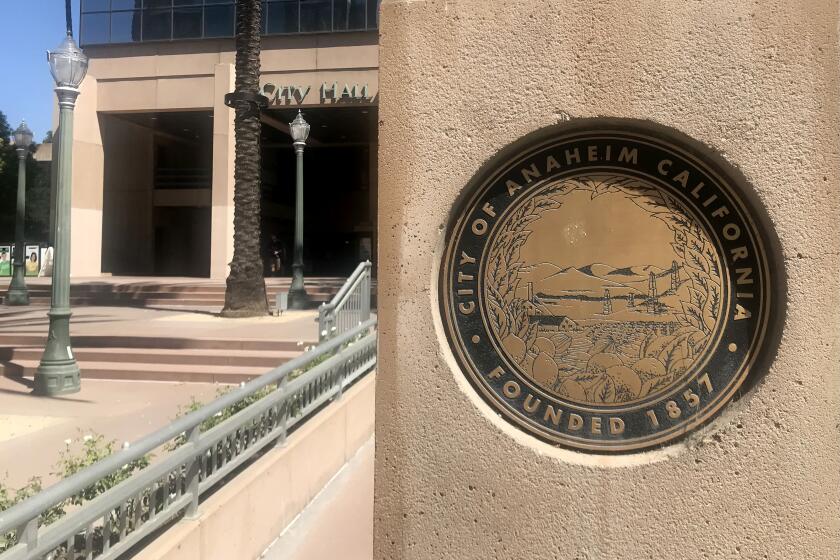For Japanese Americans in Orange County, Shohei Ohtani is already their MVP

Angels superstar Shohei Ohtani put the finishing touches on a historic season for the ages during his team’s final home game right where he fashioned its peerless prowess — on the mound and at the plate.
The two-way phenom notched 10 strikeouts against the Seattle Mariners on Sunday and lowered his ERA to 3.18 through 23 starts; as a batter, Ohtani added a single to complement an offensive campaign powered by 45 home runs.
Angel fans serenaded Ohtani with chants of “M-V-P” to cap off a season many will passionately argue as deserving of the American League’s top honor.
For Japanese Americans in Orange County, Ohtani’s transcendent talents, which have drawn comparisons to Babe Ruth, are more than just MVP-worthy; they’re a point of pride.
“He’s definitely a bright spot in our community,” said Kihei Otani, president of the Orange County Japanese American Assn. “Japanese Americans here are all excited to see him playing. I can’t imagine any Japanese American not rooting for him and not going to his games to support him.”
The “Shotime” buzz brought Otani out to more Angel ballgames this season as fans returned to the stands.
He hasn’t had the chance to meet the famous ballplayer of the same last name, but the O.C. Japanese American Assn. did get involved in a pregame Japan Day celebration at Angel Stadium in 2019 where Ohtani made a special appearance.
One of Otani’s friends also shared a story of recently meeting the slugger (and ace) while he did some grocery shopping at a Japanese market in O.C.
“Oh hello,” Ohtani said politely when approached.
“I hope that he maintains his lowkey, down-to-earth personality,” Otani said.
Since first signing with the Angels in December 2017, the superstar athlete’s arrival has resonated with Japanese immigrants in Southern California, like Otani.
But as an ethnic group, Japanese Americans have established deep roots in O.C. for decades, especially as agricultural laborers and farmers in the early 20th century who participated in America’s pastime.
“Baseball was one of the first organized sports among Japanese Americans in Orange County,” said Mary Adams Urashima, an author and local historian of O.C.’s Japanese American heritage. “The first known Japanese American baseball team here was formed by the Smeltzer Athletic Club in north Huntington Beach around 1924, with Nisei players, most under age 17. The Orange Groves, or “OGs,” practiced and played home games on a graded dirt lot in Wintersburg Village in north Huntington Beach.”

Subjected to the prejudices of the day, the Orange Groves were excluded from the Huntington Beach district league and, as a result, played against ethnic teams from other cities.
During World War II, Japanese Americans carried a love of the game with them as they were forced into incarceration camps; playing baseball became a lifeline behind barbed wire.
“The importance of baseball as a touchstone during that time still resonates in the Japanese American community today,” Urashima added.
After World War II and incarceration camp policies ended, the OCO Club formed as part of a broader sports-safe haven for Japanese American youth who continued to be excluded from other leagues. It rechartered in 1988 and even though the Santa Ana-based nonprofit is more focused on basketball, its young athletes are crazy for Ohtani just the same.
“My own cousin’s kids are always watching him play,” said Lily Kozai, an OCO Club board member. “They have his jersey and want to go to Angel games. The same goes for many other youth in our club as well as the community.”
Ohtani’s excellence on the baseball diamond is more than just a source of inspiration — it’s an opportunity to teach life lessons. The Rev. Dr. Mutsumi Wondra gave a dharma talk last week at the Orange County Buddhist Church in Anaheim called “Shohei Mandala: Repeated Practice Becomes a Good Habit.”
Wondra, who was raised in a Shin Buddhist family in Japan, researched the ballplayer’s life story and took interest in the dream matrix he developed when a teenager. Ohtani wanted to be the top draft pick in the Nippon Professional Baseball league, mapped out how to improve himself in mandala-like fashion and achieved the feat in 2012 when selected by the Hokkaido Nippon-Ham Fighters.
“I realized I could connect Shohei and a lesson on Buddhism in composing a dharma message,” Wondra said. “If I share this mandala methodology with young people or even adults, that’s fun.”
The children in attendance for Wondra’s dharma talk paid close attention, nodded when she made key points and pulled out their smartphones to do some on-the-spot research.
“Because of COVID, everything has been kind of depressing,” Wondra said. “We cherish Ohtani and applaud him for being like a light switched in the darkness.”
For Japanese Americans, Ohtani’s once-in-a-century talents have provided such joyous moments on and off the field during the throes of an otherwise grim once-in-a-century pandemic.

Dennis Masuda, a longtime Angel fan and 17-year season ticket holder, attended 60 home games this year and watched Ohtani’s historic feats with pride. “I don’t get to see many Japanese players,” he said. “The last time the Angels had one was Hideki Matsui 11 years ago. Having one on my hometown team as a pitcher and a hitter was quite thrilling.”
The retired Marina High School teacher and coach marveled at the exit velocity of the slugger’s home runs followed by his mastery on the mound. And he wasn’t alone.
“It’s really noticeable how many more Japanese [fans] are at the ballpark now,” Masuda said. “Most of the signs out there promoting Shohei are all in Kanji. I laugh because if somebody opened a sushi stand at the stadium they’d be making a million dollars!”
All the latest on Orange County from Orange County.
Get our free TimesOC newsletter.
You may occasionally receive promotional content from the Daily Pilot.




